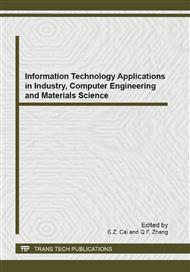p.1840
p.1845
p.1850
p.1855
p.1860
p.1865
p.1870
p.1875
p.1879
The Research & Application of Network Learning Platform Based on the Component Composition
Abstract:
Software development method based on component is currently a popular software production technology, its core around the component development and assembly technology. But how to combine the practical application requirements implementation based on component composition software development process is a worth studying further. According to the development of component technology, put forward a kind of network learning platform development framework based on component assembly, and study the website of component development and assembly method, apply this technology to the development of our online learning platform, results show the effectiveness of the proposed method.
Info:
Periodical:
Pages:
1860-1864
Citation:
Online since:
September 2013
Authors:
Price:
Сopyright:
© 2013 Trans Tech Publications Ltd. All Rights Reserved
Share:
Citation:


